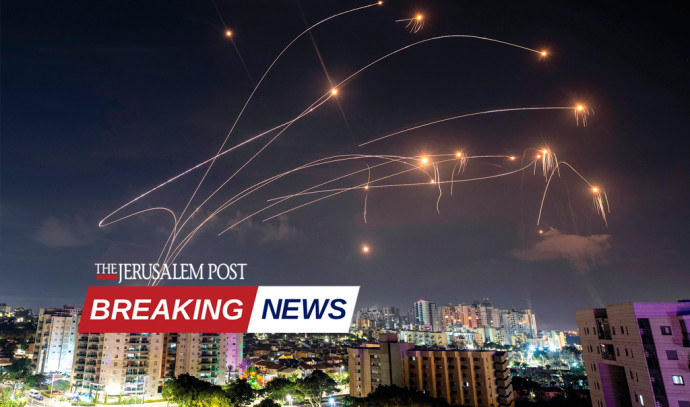Thu Nov 21, 2024 - 11:40 am EST
(LifeSiteNews) — During a November seminar about the “Sinicization of Religion in Shanghai,” Joseph Shen Bin, a “bishop” controversially appointed by the Chinese Communist Party (CCP), exhorted the Shanghainese clergy to study and preach CCP ideology, namely, the documents of “the Third Plenary Session of the 20th CCP Central Committee” and “General Secretary Xi Jinping’s thoughts on the Sinicization of religion,” according to a report by news outlet Bitter Winter.
Catholic participants in the aforementioned seminar testified to Bitter Winter that Shen Bin encouraged members of the audience to concentrate on the “sinicization” of the Catholic religion, a process which Bitter Winter highlighted “does not mean adapting religion to Chinese customs but to the CCP’s ideology.”
Moreover, Shen Bin noted the significance of closer collaboration with the United Front Work Department, which oversees “official” religion in Communist China. The same Bitter Winter report added that “Yin Du, Director of the Ethnic and Religious Affairs Department of the Municipal United Front Work Department, and Gu Weidong, Director of the Catholic Affairs Department of the Municipal Ethnic and Religious Affairs Bureau, attended the whole event.”
When Shen Bin was selected by the CCP as the new Bishop of Shanghai on April 4 last year, the Vatican officially admitted that “the Holy See learned from the media of the installation” only shortly prior to the appointment.
“Bishop Shen Bin, until now Bishop of Haimen, was installed in the Diocese of Shanghai, China, this morning,” Vatican News reported.
“The Holy See had been informed a few days ago of the decision of the Chinese authorities,” Holy See spokesman Matteo Bruni said.
“I have nothing to say about the Holy See’s assessment of the matter for the time being,” Bruni added.
In other words, it was the CCP and not the Vatican that unilaterally appointed Shen Bin to head Shanghai.
During Shen Bin’s inauguration ceremony, he pledged to “adhere to the principle of independence and self-government” that forms the raison d’etre of China’s pro-CCP Patriotic Catholic Church.
In a statement dated April 4 last year, the Shanghai Diocese revealed that around 200 people were present at Shen Bin’s inauguration ceremony.
“Bishop Shen Bin said that he will continue to carry forward the fine tradition of patriotism and love of the Catholic Church in Shanghai, adhere to the principle of independence and self-government, adhere to the direction of Catholicism in China, and better promote the healthy tradition of Catholic evangelism in Shanghai,” the statement read.
Unsurprisingly, many critics regarded Shen Bin’s installation by the CCP as a violation of a contentious and clandestine Sino-Vatican agreement regarding the appointment of bishops signed in September 2018.
According to the 2018 Sino-Vatican agreement, Rome would acknowledge seven bishops appointed by the CCP, as well as admit the establishment of a new Catholic diocese in Chengde, in the northern province of Hebei. While the Vatican would officially appoint new Chinese bishops these men would nevertheless be chosen by the CCP.
Besides, a new report, authored by Nina Shea for the Hudson Institute, has disclosed details about the clampdown of 10 Catholic bishops in China who have resisted the CCP’s efforts to interfere in religious matters since the 2018 Sino-Vatican deal. This Hudson Institute report narrates the traumatic encounters of Vatican-approved bishops who have experienced “detention without due process, surveillance, police investigations, and banishments from their dioceses for refusal to submit to the Chinese Patriotic Catholic Association (CPCA), a state-managed group controlled by the CCP’s United Front Work Department,” Catholic News Agency (CNA) reported.
“This report shows that religious repression of the Catholic Church in China has intensified since the 2018 China-Vatican agreement on the appointment of bishops,” Shea stated.
“Beijing targeted these 10 bishops after they opposed the Chinese Patriotic Catholic Association, which requires its members to pledge independence from the Holy See,” she elaborated.
Bitter Winter pointed out that in light of several events following the 2018 Sino-Vatican deal, it was evident that the CCP regards the deal as applicable to the Vatican only, which is expected not to decry religious persecution in China. For its part, the CCP can still unilaterally nominate “bishops” as it sees fit.
Your support makes stories like this possible!
LifeSiteNews is completely donor supported, allowing us to report on what truly is happening in the world, free of charge and uncensored. A donation to LifeSite will ensure millions around the world can continue to come to our site to find the truth people are so desperately searching for on life, faith, family and freedom.

 By LifeSiteNews (Politics) | Created at 2024-11-21 16:52:52 | Updated at 2024-11-24 15:15:03
2 days ago
By LifeSiteNews (Politics) | Created at 2024-11-21 16:52:52 | Updated at 2024-11-24 15:15:03
2 days ago








